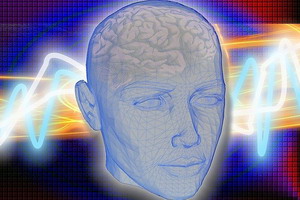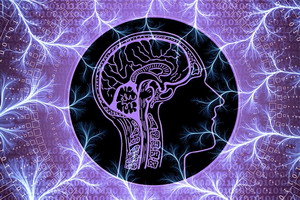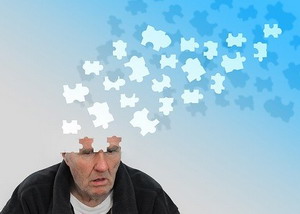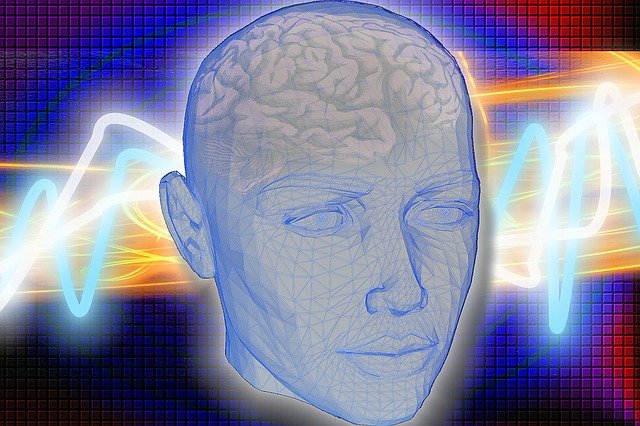 This story begins back in the 17th and 18th centuries in Europe. A wonderful new food from the Americas, corn, was brought back to Europe and widely cultivated. It seemed like an excellent food source as it yielded much larger crops per acre than wheat or barley. The problem was that after a while people started developing odd skin lesions, diarrhea, and a host of mental symptoms such as depression, aggression, apathy, and confusion. After four or five years of these symptoms, they would die. A doctor in France concluded that there was some sort of toxin or disease carried in the corn and started a campaign to eliminate corn usage in France which eliminated the disease. The disease was given the name pellagra. Other areas of Europe did not get rid of their corn and continued to suffer from this modern “plague.”
This story begins back in the 17th and 18th centuries in Europe. A wonderful new food from the Americas, corn, was brought back to Europe and widely cultivated. It seemed like an excellent food source as it yielded much larger crops per acre than wheat or barley. The problem was that after a while people started developing odd skin lesions, diarrhea, and a host of mental symptoms such as depression, aggression, apathy, and confusion. After four or five years of these symptoms, they would die. A doctor in France concluded that there was some sort of toxin or disease carried in the corn and started a campaign to eliminate corn usage in France which eliminated the disease. The disease was given the name pellagra. Other areas of Europe did not get rid of their corn and continued to suffer from this modern “plague.”
 At the turn of the 19th century in the southern United States, pellagra was rampant, particularly in orphanages, prisons, and mental hospitals. By 1940 over 3 million people had pellagra and over 100,000 had died. Largely through the work of one Dr. Goldberger, it was determined that this disease was not caused by something in the diet, but rather by something missing in the diet. Those who ate meat and other high-protein foods did not get pellagra, while those on poor diets, particularly those who ate lots of cheap corn, did. Oddly, the Native Americans from whom the corn was first obtained did not get pellagra. This was the clue that led to the eventual discovery of niacin – vitamin B3. It seems that the indigenous people had long ago figured out that the corn had to be treated with alkali wood ash or lye before cooking. This converted the unusable form of niacin in the corn to a type that humans could use. Corn is also especially low in the amino acid tryptophan, which the body can use to make niacin.
At the turn of the 19th century in the southern United States, pellagra was rampant, particularly in orphanages, prisons, and mental hospitals. By 1940 over 3 million people had pellagra and over 100,000 had died. Largely through the work of one Dr. Goldberger, it was determined that this disease was not caused by something in the diet, but rather by something missing in the diet. Those who ate meat and other high-protein foods did not get pellagra, while those on poor diets, particularly those who ate lots of cheap corn, did. Oddly, the Native Americans from whom the corn was first obtained did not get pellagra. This was the clue that led to the eventual discovery of niacin – vitamin B3. It seems that the indigenous people had long ago figured out that the corn had to be treated with alkali wood ash or lye before cooking. This converted the unusable form of niacin in the corn to a type that humans could use. Corn is also especially low in the amino acid tryptophan, which the body can use to make niacin.
 What does niacin do? Niacin is used by the body to make a molecule called NAD. This is the key molecule in the pathway that breaks down foods we eat and generates the energy units that everything in our body runs on. Without niacin, we can’t form the chemical electricity we need to function. That includes our brain, hence the relationship to mental health. As we age our energy factories, the mitochondria, have less and less NAD to work with because it is being destroyed by a nasty chemical called CD38 being released by old cells at the end of their life cycle. Our old cells gradually poison our healthy cells if they are not removed through fasting-induced autophagy. Right now I am working to reverse this process in myself by engaging in short 3 day fasts and increasing my intake of niacin to 1000 mg per day. Hopefully, this will clean out the old cranky cells and ramp up my production of NAD to give my body the energy it needs to actually be healthy. This has to be approached slowly as niacin creates a significant flush reaction and the dose has to be built up to over a month or two. I started at 100 mg a day and am now at 1000 mg. Non-flushing niacin does not work for this and slow-release niacin is toxic to the liver.
What does niacin do? Niacin is used by the body to make a molecule called NAD. This is the key molecule in the pathway that breaks down foods we eat and generates the energy units that everything in our body runs on. Without niacin, we can’t form the chemical electricity we need to function. That includes our brain, hence the relationship to mental health. As we age our energy factories, the mitochondria, have less and less NAD to work with because it is being destroyed by a nasty chemical called CD38 being released by old cells at the end of their life cycle. Our old cells gradually poison our healthy cells if they are not removed through fasting-induced autophagy. Right now I am working to reverse this process in myself by engaging in short 3 day fasts and increasing my intake of niacin to 1000 mg per day. Hopefully, this will clean out the old cranky cells and ramp up my production of NAD to give my body the energy it needs to actually be healthy. This has to be approached slowly as niacin creates a significant flush reaction and the dose has to be built up to over a month or two. I started at 100 mg a day and am now at 1000 mg. Non-flushing niacin does not work for this and slow-release niacin is toxic to the liver.
 The very first vitamin discovered was vitamin B1 or thiamine. It had a similar route of discovery as niacin (B3). The disease created by a lack of Thiamine was Beriberi. This was a common disease, much like scurvy, with sailors on long sea voyages. Here the problem was with Japanese sailors because they ate a diet largely of polished rice. (Polishing the rice removed the rice bran oil that would go rancid when the rice was stored for long periods.) Chickens fed polished rice were found to develop paralysis, which would go away when they were fed unpolished rice. Once again something missing from the diet was causing disease. Beriberi has many neurological manifestations that include malaise, irritability, and confusion, as well as motor symptoms such as paralysis and ataxia. If not treated with thiamine, Beriberi is fatal.
The very first vitamin discovered was vitamin B1 or thiamine. It had a similar route of discovery as niacin (B3). The disease created by a lack of Thiamine was Beriberi. This was a common disease, much like scurvy, with sailors on long sea voyages. Here the problem was with Japanese sailors because they ate a diet largely of polished rice. (Polishing the rice removed the rice bran oil that would go rancid when the rice was stored for long periods.) Chickens fed polished rice were found to develop paralysis, which would go away when they were fed unpolished rice. Once again something missing from the diet was causing disease. Beriberi has many neurological manifestations that include malaise, irritability, and confusion, as well as motor symptoms such as paralysis and ataxia. If not treated with thiamine, Beriberi is fatal.
 Thiamine is used in every cell of the body. It is essential for breaking down proteins and sugars. It too is essential in the creation of the chemical energy molecule ATP just like niacin. Thiamine is easily destroyed by heat and inactivated by sulfites (a common food preservative), plant acids like tannin, certain bacterial enzymes, and some polyphenols. Usually, thiamine is removed from grains during processing, and thus the reason it is added back into flour after it has been refined. Like all vitamins, our body cannot make these vital compounds but must get them from our diet. Like minerals, essential fats, and essential amino acids, vitamins tie us to having a complete diet in order to survive. If we are lacking any of these dietary essential nutrients, our brain and body don’t function well or at all. Interestingly there are no essential sugars or carbohydrates. We don’t need them at all.
Thiamine is used in every cell of the body. It is essential for breaking down proteins and sugars. It too is essential in the creation of the chemical energy molecule ATP just like niacin. Thiamine is easily destroyed by heat and inactivated by sulfites (a common food preservative), plant acids like tannin, certain bacterial enzymes, and some polyphenols. Usually, thiamine is removed from grains during processing, and thus the reason it is added back into flour after it has been refined. Like all vitamins, our body cannot make these vital compounds but must get them from our diet. Like minerals, essential fats, and essential amino acids, vitamins tie us to having a complete diet in order to survive. If we are lacking any of these dietary essential nutrients, our brain and body don’t function well or at all. Interestingly there are no essential sugars or carbohydrates. We don’t need them at all.
 Let’s move on to the next B vitamin that really has a huge impact on brain function and mental health – B6. The active form of B6 is called pyridoxal-5-phosphate or PLP. In supplements, we usually find pyridoxine hydrochloride, a more stable form of PLP which the body converts to the active PLP form. PLP is required for the manufacture of most of the major neurotransmitters – serotonin, dopamine, GABA, melatonin, and L-Dopa. The concentration of B6 in the brain is 100 times greater than in the blood because of this critical need. If you find that you are a candidate for psych meds like amphetamines, SSRIs, or benzodiazepines which try to mimic or increase basic neurotransmitters, make sure that you don’t simply have a deficiency of good old B6. If you are low on B6 then you won’t be able to make the necessary amount of neurotransmitters to feel okay. Always rule this out with depression or anxiety disorders.
Let’s move on to the next B vitamin that really has a huge impact on brain function and mental health – B6. The active form of B6 is called pyridoxal-5-phosphate or PLP. In supplements, we usually find pyridoxine hydrochloride, a more stable form of PLP which the body converts to the active PLP form. PLP is required for the manufacture of most of the major neurotransmitters – serotonin, dopamine, GABA, melatonin, and L-Dopa. The concentration of B6 in the brain is 100 times greater than in the blood because of this critical need. If you find that you are a candidate for psych meds like amphetamines, SSRIs, or benzodiazepines which try to mimic or increase basic neurotransmitters, make sure that you don’t simply have a deficiency of good old B6. If you are low on B6 then you won’t be able to make the necessary amount of neurotransmitters to feel okay. Always rule this out with depression or anxiety disorders.
 Who tends to have B6 deficiencies? Alcohol dependence generates low B6 levels, obesity (so that means at least 50% of the population), pregnancy, malabsorption disorders like colitis, Crohn’s, or Celiac, impaired kidney function, and autoimmune disorders. So we are talking about a major portion of the population that is at risk for a B6 deficiency and therefore mental issues. Could this be a reason why psych medications are so widely used by the population? Have you been on these meds and found they did not work? This opens up our final subject because low folic acid levels are associated with poor response to anti-depressant medications, and supplementing with folic acid often allows them to work properly. Be aware, however, that meta-analysis of 372 clinical trials has found that rates of suicidal thinking and behavior are higher in patients taking anti-depressant medication than it is in those taking a placebo. That is why they have a black box warning label on them. Plus they have lovely side effects like weight gain, loss of libido, nausea, constipation, sweating, dizziness, and anxiety. What the heck? What you take for depression produces anxiety!
Who tends to have B6 deficiencies? Alcohol dependence generates low B6 levels, obesity (so that means at least 50% of the population), pregnancy, malabsorption disorders like colitis, Crohn’s, or Celiac, impaired kidney function, and autoimmune disorders. So we are talking about a major portion of the population that is at risk for a B6 deficiency and therefore mental issues. Could this be a reason why psych medications are so widely used by the population? Have you been on these meds and found they did not work? This opens up our final subject because low folic acid levels are associated with poor response to anti-depressant medications, and supplementing with folic acid often allows them to work properly. Be aware, however, that meta-analysis of 372 clinical trials has found that rates of suicidal thinking and behavior are higher in patients taking anti-depressant medication than it is in those taking a placebo. That is why they have a black box warning label on them. Plus they have lovely side effects like weight gain, loss of libido, nausea, constipation, sweating, dizziness, and anxiety. What the heck? What you take for depression produces anxiety!
 So, last of all let us consider B12 and folic acid. B12 deficiency creates a veritable checklist of mental disorders. These include paranoia, depression, memory loss, poor concentration and learning impairment, fatigue, and various nerve disorders. This also ties into our previous newsletter on low stomach acid as this can cause B12 deficiency. So all you folks out there taking acid-blocking drugs beware, you are setting yourself up for irreversible nerve damage if your B12 levels drop. Early signs include neuropathy – odd pains, tingling, or numbness in the arms or legs. Gastric bypass surgery also sets you up for this. Another red flag is the use of metformin, the anti-diabetic drug, which also induces a B12 deficiency. So if you are on metformin, be sure to take supplemental B12.
So, last of all let us consider B12 and folic acid. B12 deficiency creates a veritable checklist of mental disorders. These include paranoia, depression, memory loss, poor concentration and learning impairment, fatigue, and various nerve disorders. This also ties into our previous newsletter on low stomach acid as this can cause B12 deficiency. So all you folks out there taking acid-blocking drugs beware, you are setting yourself up for irreversible nerve damage if your B12 levels drop. Early signs include neuropathy – odd pains, tingling, or numbness in the arms or legs. Gastric bypass surgery also sets you up for this. Another red flag is the use of metformin, the anti-diabetic drug, which also induces a B12 deficiency. So if you are on metformin, be sure to take supplemental B12.
 Folic acid gets into a deeper subject than we have time for but is related to the issue of methylation which controls the opening and expression of our genes. Too much or too little methylation each creates different patterns of mental issues. Folic acid decreases methylation and so is good for those with over-methylation problems but becomes a problem for those with under methylation problems. The blood test most helpful for this is checking blood histamine levels.
Folic acid gets into a deeper subject than we have time for but is related to the issue of methylation which controls the opening and expression of our genes. Too much or too little methylation each creates different patterns of mental issues. Folic acid decreases methylation and so is good for those with over-methylation problems but becomes a problem for those with under methylation problems. The blood test most helpful for this is checking blood histamine levels.
 So as you can see, something as commonplace as our B vitamin status can have huge effects on our mental health. Even small deficiencies can have profound effects, and with the modern diet and medication usages, deficiencies are almost expected.
So as you can see, something as commonplace as our B vitamin status can have huge effects on our mental health. Even small deficiencies can have profound effects, and with the modern diet and medication usages, deficiencies are almost expected.
Take care,
David
